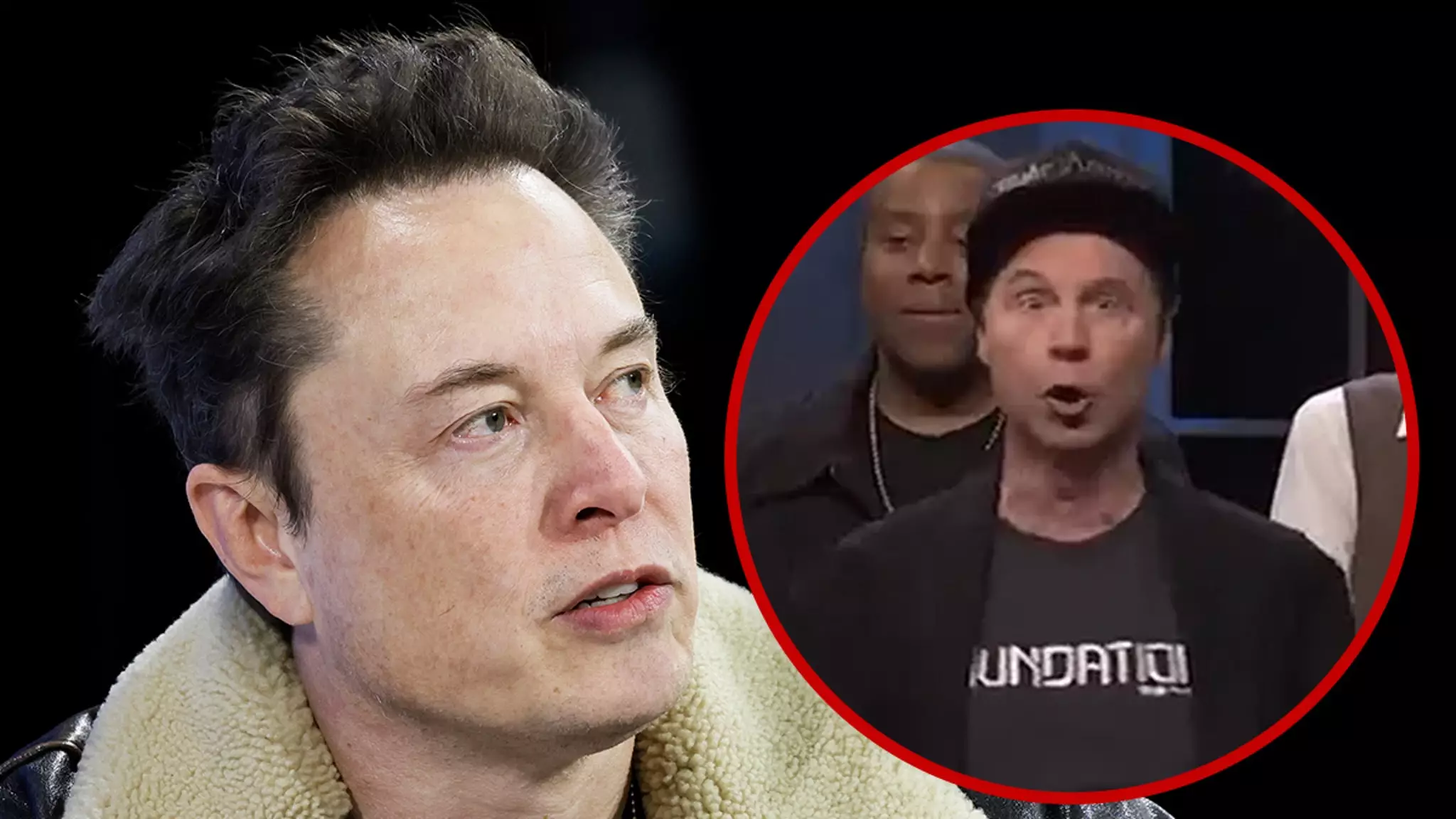In a recent episode of “Saturday Night Live,” viewers were treated to a comedic sketch that featured Dana Carvey impersonating Elon Musk—making headlines for both its humor and its implications. During the cold open, a group of cast members playfully declared their allegiance to Donald Trump, creating a critical yet light-hearted backdrop for Carvey’s portrayal of the Tesla and SpaceX CEO. The sketch has sparked significant conversation, particularly regarding the intersection of comedy and politics, as well as Musk’s own response to the segment.
Elon Musk, known for his dynamic presence in both the tech industry and social media, did not take the jokes lightly. Instead of joining in the laughter, he turned to social media to express his discontent with the SNL cast, labeling them sore losers for their apparent frustration over the recent presidential election results. This reaction indicates a deeper significance to the impersonation; Musk’s statement seems to comment not just on the performance itself, but also on the political climate and the emotional responses tied to it.
The fact that Musk is a vocal supporter of Donald Trump complicates his public persona further. By choosing to publicly respond to the sketch, Musk opens up a conversation about political loyalty and the responsibility assumed by public figures—especially in realms as influential as entertainment and politics. Musk’s reaction showcases a divide between humor as a tool for critique and humor as a reflection of personal beliefs.
The choice to incorporate Musk’s character in a segment saturated with political undercurrents underscores SNL’s longstanding tradition of using comedy to confront current events. However, Musk’s critique of the cast could signify a warning: that such comedic portrayals may not always be received with grace by the subjects. This potential for backlash raises questions about the boundaries of political satire and the emotional weight carried by those being impersonated.
Moreover, if Musk continues to express dissatisfaction with comedic representations of himself, there is a chance that SNL might alter its approach to political humor. Given Musk’s status as a key figure in the tech space and his strong opinions, his critique may serve as a litmus test for how far comedians can go in their material without facing repercussions from influential individuals.
As the political landscape remains tumultuous, and with Musk’s ongoing involvement in the tech community and support for Trump, it’s reasonable to predict that SNL will continue to find fertile ground for comedic inspiration in Musk’s life and work. The real question lies in how Musk will perceive these future portrayals following this incident. Will he embrace the humor and continue to engage with the show, or will he amplify his criticisms?
In essence, the evening of Musk’s impersonation on SNL was much more than a mere comedic act; it was a convergence of politics, personal branding, and public perception. As both Musk and the show navigate their paths forward, the implications of this incident will likely reverberate throughout political and comedic discourse for years to come.


Leave a Reply